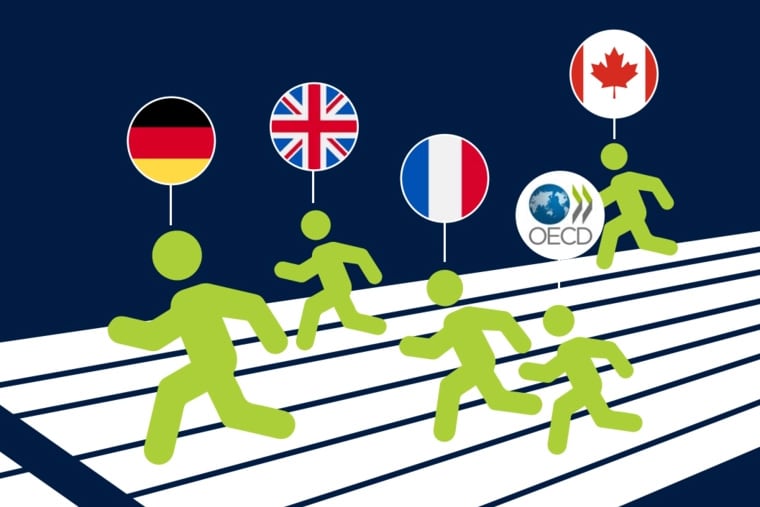Photo credit: Front cover, New Zealand’s Medicines Landscape 2022/23, Medicines NZ
New Zealand, once again, is at the back of the pack for funding new medications.
Last month, Medicines New Zealand released its latest report: New Zealand’s Medicines Landscape 2022/23.
This annual report provides a summary of facts about the medicine inequity we face in Aotearoa New Zealand. While we acknowledge Medicines New Zealand is supported by pharmaceutical representatives, it doesn’t negate the fact that we Kiwis don’t have access to many medications that are classified as standard of care medications in other OECD countries.
We came 20th, out of 20 comparable countries for access to modern medicines. You can read the report here.
Two key findings from the report are:
- New Zealand ranks last for market access to modern medicines (we come in behind Hungary, Estonia, Lithuania, Mexico, Latvia, and are way behind countries we like to compare ourselves to like Australia, the United Kingdom and Canada)
- New Zealand is, on average, twice as slow to publicly fund modern medicines as comparable countries.
In another report, released by PhRMA (Pharmaceutical Research and Manufacturers of America, a trade group representing pharmaceutical companies in the US), New Zealand ranked well below the OECD average for making new medications available. Of all the new medicines approved by regulatory agencies in the US, Europe or Japan between 2012–2021, only 16% were made available in New Zealand, compared with 34% in Australia and the OECD average of 41%.
The report also found that, on average, OECD countries have 18% of new medicines available within one year of when they’re first made available in any country. New Zealanders had access to just 3%. It also noted that the OECD average from global first launch of a new medicine to public reimbursement (i.e. when a medication is funded, at least for some people) is 45 months. In New Zealand, the average is 71 months. That’s nearly six years and by far the longest delay in all OECD countries.
Also released in April 2023 is a white paper report written by HealthiNZ, commissioned by Medicines New Zealand.
The report: Pharmac’s Medicines Waiting Lists: Impacts on Patients in Aotearoa New Zealand, is especially pertinent for our migraine community due to our application to Pharmac in November 2022 for Emgality funding.
Key findings from this report include:
- There is an average waiting time of 7.7 years and counting for applications to fund medicines across all Pharmac lists.
- Many medicines on these lists are already funded and have become a standard of care in other countries.
- It has been an average of 5.9 years and counting for applications currently on the Options for Investment waiting list.These are medicines that have met Pharmac’s criteria for funding, have been recommended for funding because they will benefit New Zealanders, but are not being funded because there is not enough money in Pharmac’s budget.
- The time taken to achieve funding decisions has increased in the last 2 years.
- Only 1 application that achieved a funding decision did so within 20 months, while in 2020/21 this same result was achieved for 16 applications. This further reinforces the finding that the time taken to achieve funding decisions has only increased over the last two years.
So what can we do? Organisations like ours, and people with health conditions affected by Pharmac funding, need to keep talking about the issue and calling for accountability from the government. We need to ensure our voices are heard by those making the decisions that affect us as individuals, and as a society. We need to keep pushing for change.What would we like our tax dollars to be spent on? Access to beneficial medicines seems like a good choice. Can we ask our politicians to make this part of their election promises?
Our Emgality Advocacy Toolkit provides our migraine community with actionable steps to help advocate for funded access for Emgality. Public support is crucial to support our funding application. Find the toolkit here.


